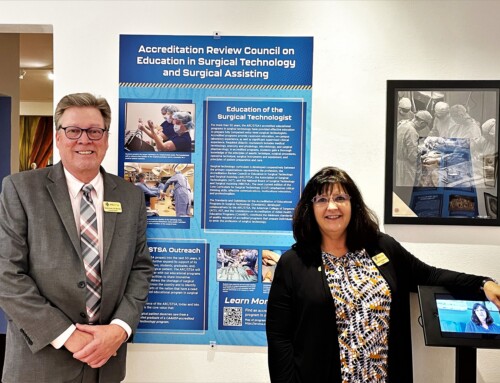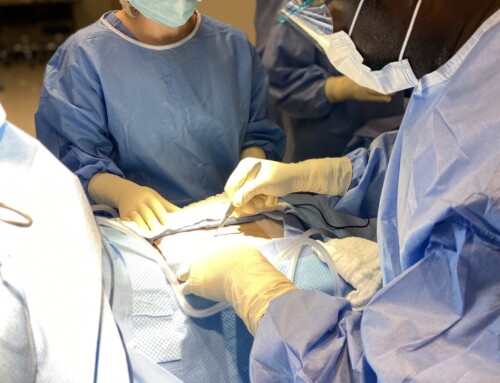Featuring Connie Bell, CST, FAST, and Theresa Sorgen-Burleson, MBA, CST
Editor’s note: The ideas shared in this article were shared and implemented prior to the need for remote learning and social distancing, but can largely still apply in a virtual classroom setting with some adjustments.
With winter break around the corner, it’s important to give students a sense of continuity and ensure they retain the information they have learned. Connie Bell, CST, FAST, shares tips for supporting students as they return to clinicals after an extended break. Plus, Theresa Sorgen-Burleson, MBA, CST, discusses how her program at the University of St. Francis keeps students engaged over longer summer breaks through a retest program.
Tips for Returning to Clinical After Winter Break
By Connie Bell, CST, FAST
- Take the first day back as a re-orientation to the clinical site (make sure the OR is aware that students will not be assigned to cases on that day)
- Meet with students in a selected place (i.e., cafeteria, library, etc.) as an ice-breaker and to share how they spent their holiday time off. Re-acquaint students and assure them of your commitment to their success.
- Depending on where they are in their clinical experience, the following are suggestions to regain or increase their confidence upon returning to the OR:
- Find an empty room, grab some gowns and gloves and recheck their scrubbing, gowning and gloving skills.
- If there are any packs available that have been contaminated, use them and do a mock setup.
- If any basic trays are available, go over instrumentation and counting.
- Utilize the suture room or the suture carts to review sutures used at that particular facility.
- If needed, see if the Sterile Processing Department (SPD) will allow the students to unobtrusively review available trays.
- Have a couple of quick quizzes to practice or utilize the exams available in the AST journal, The Surgical Technologist.
- If time and schedules permit, re-introduce students to key OR personnel.
- If next day schedule is available, make assignments and have the students review the cases using their studying material.
- Time left may be spent on Q&A related to their remaining clinical time, CST preparation workshops and graduation requirements.
Looking Ahead: How USF Engages Students Over Summer Breaks
By Theresa Sorgen-Burleson, MBA, CST
Our surgical technology program at the University of Saint Francis in Fort Wayne, Indiana, is comprised of four semesters, with a 16-week summer break between the second and third semesters. While this is an opportunity for well-deserved time off, we found that, upon return, students were forgetting some of the surgical skills they had mastered previously.
We wanted to help our students stay sharp and, ultimately, be prepared for an eventual role in the professional world. To address this, we implemented a skills retest after the summer breaks. The goal was to encourage students to continue practicing their hands-on skills in the lab and boost knowledge retention.
The retest is based on the lab final that students complete at the end of the second semester. We have students draw a procedure from the hat. The student then has three chances to complete the procedure from start to finish with a passing score of 90%, to pass the lab final and the retest for admission to the third semester.
While this may seem like a high bar to pass, these students are well prepared and supported in completing such a task. In addition to keeping the practice lab open to students during the summer, we have scheduled summer sessions with an instructor if students wish to participate. The constant connection to studying setups and practice of procedures helps the students prepare for their final semester. Hospital staff find these students are very well prepared and ready to start the semester without any lag in knowledge.
How do you help your students stay engaged and on top of their skills after a long break? Share this article on social media with your thoughts and tips — be sure to tag ARC/STSA, too!



